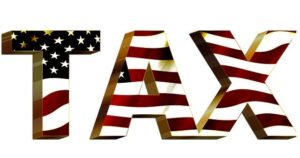Navigating UK Tax Returns: The Essential Role of Certified Translations and Accredited Services
When individuals or businesses in the UK need to submit foreign-language tax documents, such as financial statements from Spain or property documents from France, it is crucial to use professional UK translation services that specialize in legal and…….

When individuals or businesses in the UK need to submit foreign-language tax documents, such as financial statements from Spain or property documents from France, it is crucial to use professional UK translation services that specialize in legal and tax translations. These services ensure that every numerical value and term is accurately conveyed, adhering strictly to both UK tax regulations and the high standards of certified translations. By employing experts who are fluent in both languages and knowledgeable about UK tax terminology, businesses and individuals can confidently submit their translated documents to HM Revenue & Customs (HMRC), fulfilling their tax obligations accurately and compliantly.
When non-UK residents or bilingual individuals residing in the UK face the annual obligation of submitting tax returns, the importance of precise documentation becomes paramount. This article delves into the critical role of certified translations for UK tax returns, guiding readers through the intricacies of navigating foreign documents within the UK’s legal framework. We explore the key differences between certified and non-certified translations, ensuring that your tax submissions are accurate and compliant. From understanding the necessity of these translations to identifying reputable UK translation services, this comprehensive guide provides a clear path to successful tax submission. Discover how professional translators facilitate compliance with HM Revenue & Customs requirements and learn essential tips for maintaining document integrity. Case studies highlight the benefits of employing certified translations in tax submissions, underscoring their indispensable role in the process.
- Understanding the Necessity of Certified Translations for UK Tax Returns
- The Role of Accredited Translation Services in Tax Document Compliance
- Key Differences Between Certified and Non-Certified Translations
- Common Foreign Documents Required for UK Tax Returns
- The Legal Framework Governing Certified Translations in the UK
- How to Identify a Reliable UK Translation Service Provider
- Step-by-Step Process of Obtaining a Certified Translation for Tax Purposes
- Tips for Ensuring Accuracy and Compliance in Translated Tax Documents
- Case Studies: Successful Tax Submission with Certified Translations
Understanding the Necessity of Certified Translations for UK Tax Returns

When non-UK residents or individuals with international ties own assets in the United Kingdom or earn income within its jurisdiction, it becomes imperative to accurately report this information on UK tax returns. A critical aspect of this reporting is ensuring that all tax documents are comprehensible to the UK tax authorities. This is where the role of professional UK translation services becomes indispensable. These services provide certified translations for documents such as property deeds, contracts, and income statements that may be in a foreign language. The translations must not only convey the exact meaning but also meet the stringent requirements set by Her Majesty’s Revenue and Customs (HMRC). Certified translations come with a statement of accuracy and are typically accompanied by a official stamp or seal, which attests to the translator’s competence and the translation’s authenticity. This verification process is crucial as it confirms that the translated tax documents align with the original content, thus preventing any discrepancies or misinterpretations that could lead to complications or penalties. Engaging trusted UK translation services ensures that all tax-related documentation submitted to HMRC is clear, precise, and legally binding, facilitating a smooth tax filing process for individuals with an international background.
The Role of Accredited Translation Services in Tax Document Compliance

When it comes to ensuring accuracy and compliance with UK tax regulations, certified translations play a pivotal role for individuals and businesses with foreign language tax documents. The UK’s tax system requires precise translations of documents such as annual accounts, invoices, and financial statements from foreign languages into English for submission to HM Revenue & Customs (HMRC). Accredited translation services specialise in providing these translations, adhering to the strict standards set by the UK’s Association of Translation Companies (ATC) or equivalent bodies. These services are staffed by professional translators who are not only fluent in both the source and target languages but also well-versed in tax law and terminology. This expertise ensures that the translated documents accurately reflect all financial details, thereby avoiding potential misreporting or misinterpretation of financial data. By leveraging the expertise of such translation services, individuals and businesses can confidently submit their international tax documents to HMRC, knowing that their translations are compliant with legal requirements and fully understandable by UK tax authorities. This not only streamlines the tax compliance process but also mitigates the risk of penalties or audits due to translation errors.
Key Differences Between Certified and Non-Certified Translations

When submitting tax documents to the UK tax authorities, the accuracy and legitimacy of translations are paramount. Certified translations differ from non-certified ones in several key aspects that impact their acceptance for official purposes. A certified translation is an exact, complete rendition of a foreign document into English or vice versa, performed by a professional translator who holds the necessary qualifications and accreditation. This translation comes with a statement of accuracy and a declaration, which attests to the translator’s competence in both languages and their understanding of the subject matter. The declaration is typically accompanied by the translator’s signature, seal, or stamp, which verifies the authenticity of the translation.
In contrast, non-certified translations may be suitable for general informational purposes but lack the official credentials that make them acceptable for UK tax returns. While a non-certified translator might also be proficient in both languages and provide an accurate translation, the absence of a formal certification renders these translations insufficient for legal, governmental, or tax-related documentation. For tax documents destined for the HMRC, it is imperative to opt for certified translations provided by UK translation services that are recognized by the relevant authorities and can attest to the accuracy of the translations with their professional credentials. This ensures that all financial details are correctly understood and accounted for, avoiding any potential issues with tax submissions or audits in the UK.
Common Foreign Documents Required for UK Tax Returns

When individuals or businesses with a presence in the UK have foreign income, assets, or investments, they are required to report these on their UK tax returns. To comply with this legal obligation, it is essential to provide accurate translations of relevant foreign tax documents. The UK’s tax authorities, HM Revenue and Customs (HMRC), accept certified translations alongside original documents or copies thereof. Common foreign documents that may be required for UK tax returns include annual accounts, financial statements, bank statements, property valuation reports, and income statements. These documents must be translated into English by professional translation services specialising in Tax Documents UK to ensure clarity and compliance with the tax regulations. It is crucial for taxpayers to engage with translators who are not only proficient in the source and target languages but also well-versed in the specific terminologies relevant to tax and finance. This precision minimises the risk of misinterpretation by HMRC, thereby avoiding potential penalties or additional scrutiny. Translation services experienced in Tax Documents UK can provide this level of expertise, ensuring that all foreign documents are accurately translated and meet the necessary legal standards required for submission with UK tax returns.
The Legal Framework Governing Certified Translations in the UK

In the United Kingdom, the legal framework governing certified translations for tax documents is stringent and well-defined, ensuring the accuracy and legitimacy of translated content for HM Revenue and Customs (HMRC). The UK’s translation services must adhere to the standards set out by the Professional Translators’ Association (ATA) or similar accreditation bodies. These translations are required to be precise and complete, reflecting the exact details as they appear in the original documents. A certified translator, who is a qualified member of a recognized association, must provide a statement confirming the translation’s accuracy, along with their professional credentials. This certification is crucial for tax documents UK translation services to meet the regulatory requirements set by HMRC and to avoid any penalties or issues with the submission of tax returns. The translator’s signature, date, and official stamp are all necessary elements that authenticate the translated document, making it legally equivalent to the original. This process is essential for individuals and businesses alike who need to present foreign-language documents as part of their UK tax return submissions, ensuring compliance with legal obligations and facilitating seamless communication between taxpayers and the UK tax authorities.
How to Identify a Reliable UK Translation Service Provider

When the intricacies of tax documents necessitate precision and clarity in translation, identifying a reliable UK translation service provider becomes paramount. The translator’s proficiency in both languages and intimate knowledge of UK tax terminology is crucial. A competent service will possess native-speaker translators who specialize in legal and financial translations. These experts are adept at accurately conveying complex tax terminologies, ensuring that your documents align with the expectations of HM Revenue & Customs (HMRC). To validate their reliability, consider checking their credentials, including professional certifications such as those from the Institute of Translation and Interpreting (ITI) or the Association of Translation Companies (ATC), which underscore their commitment to quality and adherence to industry standards.
In addition to qualifications, a reliable UK translation service provider should offer a track record of successfully translated tax documents for clients in similar situations. Look for reviews and testimonials that attest to their expertise and reliability. Furthermore, their process should include a thorough review by a second translator to ensure accuracy and compliance with the UK’s legal requirements for official documentation. This not only safeguards against potential errors but also guarantees that your translated tax documents will be accepted without delay by HMRC. By adhering to these criteria, you can confidently choose a translation service that will handle your tax documents with the utmost professionalism and accuracy.
Step-by-Step Process of Obtaining a Certified Translation for Tax Purposes

When UK taxpayers with foreign language documents need to submit their tax returns, obtaining a certified translation becomes a necessary step. The process of procuring a certified translation for tax purposes involves several key steps to ensure accuracy and compliance with HM Revenue & Customs (HMRC) standards. Firstly, identify the specific tax documents that require translation. These may include financial statements, income certificates, or other relevant documents. Once identified, the next step is to engage a reputable UK translation service that specializes in legal and tax-related translations. This service should offer translators who are not only proficient in both languages but also well-versed in the terminology specific to tax documentation.
Upon selection of a translation service, the documents should be forwarded to the translator for the initial translation process. The translator will convert all content into English, ensuring that each term and figure is accurately represented. After the initial translation is complete, the document undergoes a rigorous review process by both the translator and a second linguistic expert. This double-checking is crucial to eliminate any potential for misinterpretation or errors in figures, which could lead to discrepancies in tax reporting. Once both experts confirm the accuracy of the translation, the translated document receives the certified translator’s signature and stamp. This certification verifies that the translation is complete and correct to the best of the translator’s knowledge and ability. Finally, the certified translation should be submitted alongside the original documents or as part of the tax return package to HMRC, fulfilling the necessary legal requirements for tax documents in the UK.
Tips for Ensuring Accuracy and Compliance in Translated Tax Documents

When submitting tax documents to the UK authorities, precision and compliance are paramount, especially when those documents have been translated from another language. To ensure accuracy and adherence to legal requirements in translated tax documents, it is crucial to engage with professional UK translation services that specialize in legal translations, including tax-related documents. These experts not only possess a deep understanding of both the source and target languages but are also well-versed in the specific terminology used within the UK tax system. They will provide translations that accurately reflect the original content, ensuring that numbers, figures, and technical terms are correctly represented.
Before finalizing any translated tax document, it is advisable to have the translation reviewed by a second competent translator or a tax professional with multilingual capabilities. This additional layer of verification can help catch any potential errors or misinterpretations. Moreover, utilizing certified translation services that offer a declaration of accuracy alongside the translation can provide further assurance to both the taxpayer and the UK tax authorities. Remember to verify that the translation service you choose is accredited and recognized by the relevant authorities, as this will ensure that your translated tax documents meet all necessary legal standards and will be accepted without delay.
Case Studies: Successful Tax Submission with Certified Translations

When it comes to submitting tax documents in the UK, accuracy and compliance are paramount. For individuals or businesses that operate across linguistic boundaries, this necessity extends to ensuring all foreign-language documents are accurately translated and certified. Take the case of a multinational corporation with operations in both Spain and the UK. Their Spanish subsidiary generated records that were essential for their UK tax return. To avoid any discrepancies or delays, they engaged the services of a reputable UK translation service specializing in financial translations. The certified translations provided a clear and precise representation of the original documents, adhering to both UK tax regulations and the legal requirements of the translations. As a result, the corporation successfully filed their tax return with all relevant information accurately conveyed, avoiding potential penalties and ensuring compliance.
Another case involves a UK resident who inherited property in France but faced language barriers in accessing necessary financial documents. The individual required these records to be translated for their UK tax submission. A professional translation service was enlisted to provide certified translations of the French property documents. The meticulous attention to detail ensured that every figure and term was correctly interpreted, leading to a smooth filing process. This individual’s diligence in sourcing certified translations allowed them to report their international assets accurately, thus fulfilling their tax obligations without issue. Both cases underscore the importance of utilizing professional UK translation services for tax documents, ensuring that all foreign-language information is accurately translated and certified for submission to the UK tax authorities.
When navigating the complexities of tax obligations in the UK, individuals and businesses with foreign documentation must ensure their translations are precise and compliant. Certified translations by reputable UK translation services are not just a formality but a critical component of tax return accuracy and legality. This article has elucidated the importance of these translations, providing a comprehensive guide from understanding their necessity to the practical steps for obtaining them. By adhering to the legal framework and utilizing professional translation services, taxpayers can submit documents with confidence, avoiding potential complications and ensuring compliance. The case studies presented underscore the value of this meticulous process, demonstrating its positive impact on successful tax submissions. In conclusion, when dealing with UK tax returns that involve foreign language documents, certified translations are indispensable, safeguarding both your financial obligations and legal standing.






